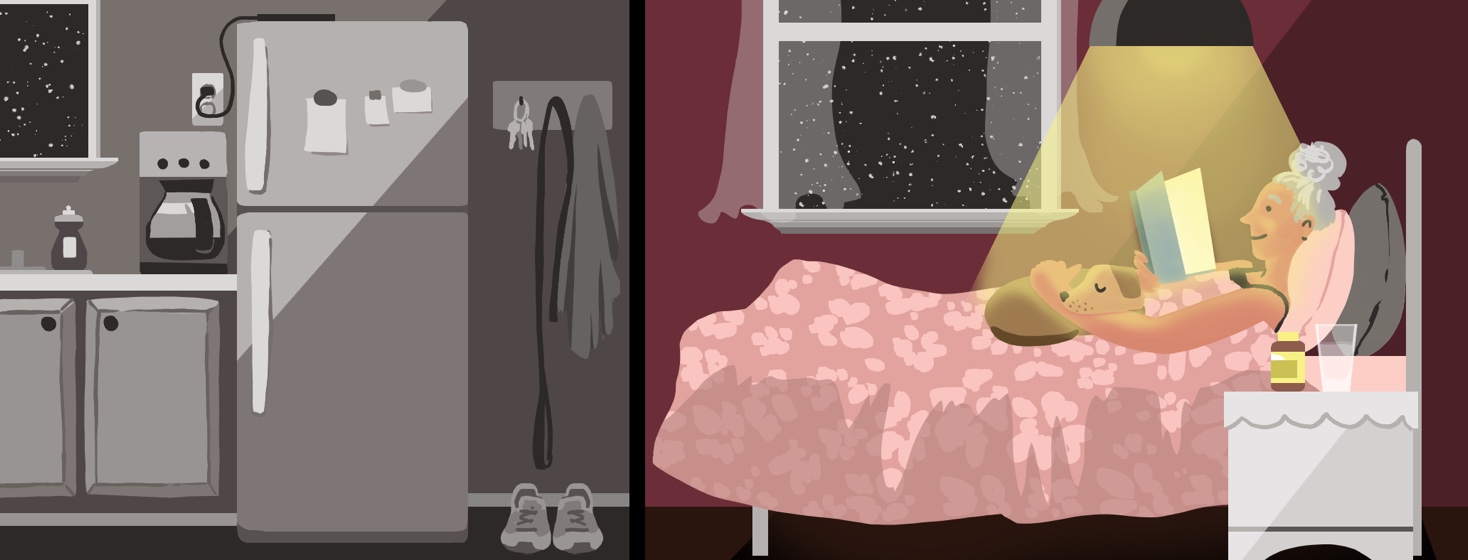Ways to Try to Get to Sleep With IBS
As I posted not too long ago, sleep is often an essential tool in managing IBS. However, the bitter irony is that IBS in and of itself can often interfere with sleep, causing a vicious cycle where one cannot sleep, then as a result has an IBS flare, which makes it harder for them to sleep, etc.
What are some tricks to getting better sleep, regardless of IBS?
Well, I recently wrote that the position we sleep in can actually have a lot to do with how well we digest--with sleeping on our backs and our left side often the most beneficial. But other than that, there are also several other things we can do to try to ensure a better night sleep. These include:
Do not eat at least two or three hours before going to bed--especially trigger foods
If you eat right before going to bed, your body is going to be working hard to try to process that food while you are laying down and interrupt your sleep cycle. If you have GERD, it is also good to wait, because otherwise, undigested food and acid (secreted during the digestion process) can try to rise up your throat and wake you up. Eating anything before bed can cause issues, but needless to say, eating trigger foods can actually cause flares. These triggers can be alcohol, fatty foods, and coffee.
Avoid having too much caffeine or having it later in the afternoon
Caffeine can cause a double whammy to IBS because it's both a trigger onto itself, but because too much of it or having it too late in the day can also really mess up one's sleep. I avoid caffeine almost altogether--especially coffee since it's such a strong IBS trigger for me. However, if and when I do have caffeine, I only have a little (like a cup of tea) and only in the morning or early afternoon, so most of it is out of my system way before I go to bed.
Try to avoid screen time an hour or so before bed
In our plugged-in society, this is easier said than done, but studies find screens can also interfere with our ability to sleep. So, try going off the internet or television a good hour before bed and do something non-electric instead, like reading or meditating, and see if that helps.
Try to get some exercise every day (but not right before bed)
Staying as active as possible during the generally helps us all be better sleepers at night. However, it's good not to do exercise too close to bedtime, as it can stimulate us and keep us awake when we don't want to be. If chronic pain is a problem, try gentle exercise like slow-paced walking and swimming.
Try a mild sleep aide
There are some natural supplements that can help us sleep. These include Valerian Root, Scullcap, Tryptophan, and Melatonin. Most of these are fairly easy on the digestion and some--like Melatonin--may even benefit IBS in other ways than just helping you sleep. Nonetheless, please still exercise precaution and consult your physician when trying out new herbs or supplements, especially if you are pregnant or nursing or have severe allergies or disorders they may exacerbate.
Try to reduce stress and anxiety
Of course, this is easier said than done, but stress and anxiety can really do a number on our sleep schedules. If you can reduce or eliminate something causing you a lot of stress in your life, consider doing it. If you can't, learn new coping or management skills. Find a skilled and caring therapist or take up meditation.
Follow your natural circadian rhythm
This may also be difficult or impossible for those with 9-5 schedules. However, for those who can, I have found it's better to follow my more natural sleep schedule and work later in the morning or day. It's hard to reconfigure one's sleep cycle, but it can be done if work makes it impossible to go to bed later at night. Consult a sleep doctor for tips and tricks.
What do you do when you have trouble sleeping and has it helped your IBS? Answer in the comments below!

Join the conversation